Premium Only Content
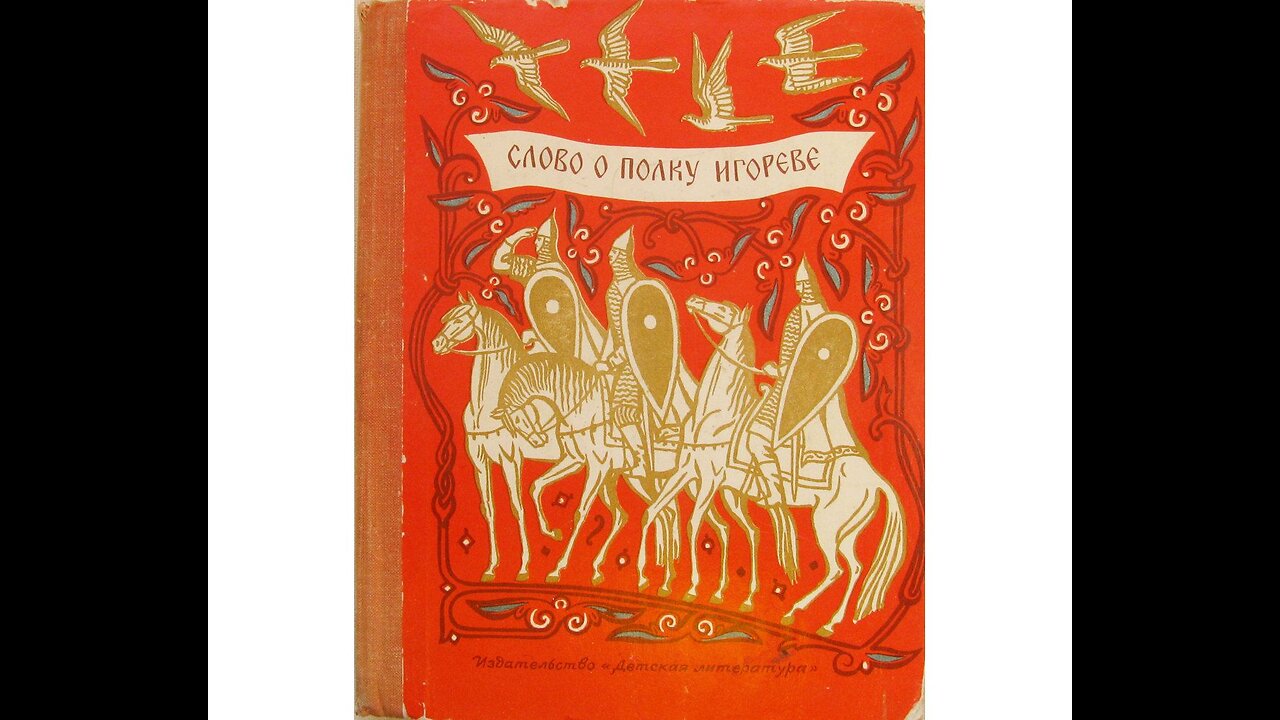
The Song of Igor's Campaign, Translated by Vladimir Nabokov. APuke (TM) Audiobook
The Song of Igor's Campaign, Igor son of Svyatoslav and grandson of Oleg.
Translated by Vladimir Nabokov.
Exordium.
Might it not become us brothers,
to begin in the diction of yore, the stern tale,
of the campaign of Igor, Igor son of Svyatoslav?
Let us, however,
begin this song in keeping with the happenings of these times,
and not with the contriving of Boyan.
For he, vatic Boyan if he wished to make a laud for one,
ranged in thought like the nightingale over the tree,
like the gray wolf across land,
like the smoky eagle up to the clouds.
For as he recalled, said he,
the feuds of initial times,
"He set ten falcons upon a flock of swans,
and the one first overtaken, sang a song first,"
to Yaroslav of yore,
and to brave Mstislav who slew Rededya before the Kasog troops,
and to fair Roman son of Svyatoslav.
To be sure, brothers,
Boyan did not really set ten falcons upon a flock of swans:
his own vatic fingers he laid on the live strings,
which then twanged out by themselves a paean to princes.
So let us begin, brothers,
this tale from Vladimir of yore to nowadays Igor.
who girded his mind with fortitude,
and sharpened his heart with manliness,
thus imbued with the spirit of arms,
he led his brave troops against the Kuman land in the name of the Russian land.
Boyan apostrophized.
O Boyan, nightingale of the times of old!
If you were to trill your praise of these troops,
while hopping, nightingale,
over the tree of thought,
if you were flying in mind up to the clouds,
if weaving paeans around these times,
you were roving the Troyan Trail,
across fields onto hills,
then the song to be sung of Igor,
that grandson of Oleg, would be:
"No storm has swept falcons across wide fields,
flocks of daws flee toward the Great Don",
or you might intone thus,
vatic Boyan, grandson of Veles:
"Steeds neigh beyond the Sula,
glory rings in Kiev,
trumpets blare in Novgorod Seversk,
banners are raised in Putivl."
Vsievolod's speech.
Igor waits for his dear brother Vsevolod.
And Wild Bull Vsevolod arrives and says to him:
"My one brother, one bright brightness, you Igor!
We both are Svyatoslav's sons.
Saddle, brother, your swift steeds.
As to mine, they are ready,
saddled ahead, near Kursk,
as to my Kurskers, they are famous knights swaddled under war horns,
nursed under helmets,
fed from the point of the lance,
to them the trails are familiar,
to them the ravines are known,
the bows they have are strung tight,
the quivers, unclosed,
the sabers, sharpened,
themselves, like gray wolves,
they lope in the field,
seeking for themselves honor,
and for their prince glory."
The Eclipse and Igor's speech.
Then Igor glanced up at the bright sun and saw,
that from it with darkness his warriors were covered.
And Igor says to his Guards:
"Brothers and Guards!
It is better indeed to be slain than to be enslaved,
so let us mount, brothers,
upon our swift steeds,
and take a look at the blue Don."
A longing consumed the prince's mind,
and the omen was screened from him by the urge to taste of the Great Don:
"For I wish," he said,
"to break a lance on the limit of the Kuman field,
with you, sons of Rus, I wish either to lay down my head or drink a helmetful of the Don."
Igor sets out, accumulation of omens.
Then Igor set foot in the golden stirrup and rode out in the Champaign.
The sun blocks his way with darkness.
Night, moaning ominously unto him,
awakens the birds,
the whistling of beasts arises?
stirring? the daeva calls on the top of a tree,
bids hearken the land unknown the Volga,
and the Azov Seaboard,
and the Sula country,
and Surozh, and Korsun,
and you, idol of Tmutorokan!
Meanwhile by untrodden roads the Kumans make for the Great Don,
their wagons screak in the middle of night,
one might say dispersed swans.
Igor rides on.
Igor leads Donward his warriors.
His misfortunes already are forefelt by the birds in the oakscrub.
The wolves, in the ravines, conjure the storm.
The erns with their squalling summon the beasts to the bones.
The foxes yelp at the vermilion shields.
O Russian land,
you are already behind the culmen!
Long does the night keep darkling.
Dawn sheds its light.
Mist has covered the fields.
Stilled is the trilling of nightingales,
the jargon of jackdaws has woken.
With their vermilion shields the sons of Rus have barred the Great prairie,
seeking for themselves honor,
and for their prince glory.
The first engagement.
Early on Friday they trampled the pagan Kuman Troops and fanned out like arrows over the field,
they bore off fair Kuman maidens and, with them gold,
and brocades,
and precious samites.
By means of caparisons,
and mantlets,
and furred cloaks of leather they started making plankings to plank marshes,
and miry spots with all kinds of Kuman weaves.
A vermilion standard,
a white gonfalon,
a vermilion penant of dyed horsehair and a silver hilt went to Igor son of Svyatoslav.
Night, and dawn of Saturday.
In the field slumbers Oleg's brave aerie:
far has it flown!
Not born was it to be wronged either by falcon or hawk,
or by you, black raven, pagan Kuman!
Gzak runs like a gray wolf,
Konchak lays out a track for him to the Great Don.
On the next day very early bloody effulgences herald the light.
Black clouds come from the sea:
They want to cover the four suns,
and in them throb blue lightnings.
There is to be great thunder,
there is to come rain in the guise of arrows from the Great Don.
Saturday: the Kumans counter attack.
Here lances shall break,
here sabers shall blunt against Kuman helmets on the river Kayala by the Great Don.
O Russian land,
you are already behind the culmen!
Now the winds, Stribog's grandsons,
in the guise of arrows waft from the sea,
against the brave troops of Igor!
The earth rumbles,
the rivers run sludgily,
dust covers the fields.
The banners speak:
"The Kumans are coming from the Don and from the sea and from all sides!"
The Russian troops retreat.
The Fiend's children bar the field with their war cries,
the brave sons of Rus bar it with their vermilion shields.
Vsevolod in battle.
Fierce Bull Vsevolod!
You stand your ground,
you spurt arrows at warriors,
you clang on helmets with swords of steel.
Wherever the Bull bounds,
darting light from his golden helmet,
there lie pagan Kuman heads:
cleft with tempered sabers are their Avar helmets by you, Fierce Bull Vsevolod!
What wound, brothers,
can matter to one who has forgotten honors and life,
and the town of Chernigov golden throne of his fathers and of his dear beloved,
Gleb's fair daughter,
the wonts and ways!
Recollections of Oleg's feuds.
There have been the ages of Troyan,
gone are the years of Yaroslav,
there have been the campaigns of Oleg,
Oleg son of Svyatoslav.
That Oleg forged feuds with the sword,
and sowed the land with arrows.
He sets foot in the golden stirrup in the town of Tmutorokan:
a similar clinking had been hearkened by the great Yaroslav of long ago,
and Vladimir son of Vsevolod every morn that he heard it stopped his ears in Chernigov.
As to Boris son of Vyacheslav,
vainglory brought him to judgment and on the Kanin river spread out a green pall,
for the offense against Oleg,
the brave young prince.
And from that Kayala Svyatopolk had his father conveyed,
cradled between Hungarian pacers tandemwise to Saint Sophia in Kiev.
Then, under Oleg, child of Malglory,
sown were and sprouted discords,
perished the livelihood of Dazhbog's grandson among princely feuds,
human ages dwindled.
Then, across the Russian land,
seldom did plowmen shout hup hup to their horses,
but often did ravens croak,
as they divided among themselves the cadavers,
while jackdaws announced in their own jargon,
that they were about to fly to the feed.
Thus it was in those combats
and in those campaigns,
but such a battle had never been heard of.
Termination of battle.
From early morn to eve,
and from eve to dawn,
tempered arrows fly,
sabers resound against helmets,
steel lances crack.
In the field unknown, midst the Kuman land,
the black sod under hooves was sown with bones and irrigated with gore.
As grief they came up throughout the Russian land.
What dins unto me,
what rings unto me?
Early today, before the effulgences,
Igor turns back his troops:
he is anxious about his dear brother Vsevolod.
They fought one day,
they fought another,
on the third, toward noon,
Igor's banners fell.
Defeat and Lamentations.
Here the brothers parted
on the bank of the swift Kayala.
Here was a want of blood wine,
here the brave sons of Rus finished the feast got their in laws drunk,
and themselves lay down In defense of the Russian land.
The grass droops with condolements and the tree with sorrow bends to the ground.
For now, brothers, a cheerless tide has set in,
now the wild has covered the strong,
Wrong has risen among the forces of Dazhbog's grandson,
in the guise of a maiden Wrong has stepped into Troyan's land,
she clapped her swan wings on the blue sea by the Don,
and clapping, decreased rich times.
The strife of the princes against the pagans has come to an end,
for brother says to brother:
"This is mine, and that is mine too,"
and the princes have begun to say of what is small:
"This is big,"
while against their own selves they forge discord,
and while from all sides with victories the pagans enter the Russian land.
O, far has the falcon gone,
Slaying birds: to the sea!
But Igor's brave troops cannot be brought back to life.
In their wake the Keener has wailed,
and Lamentation has overrun the Russian land,
shaking the embers in the inglehorn.
The Russian women have started to weep, repeating
"Henceforth our dear husbands cannot be thought of by our thinking,
nor mused about by our musing,
nor beheld with our eyes,
as to gold and silver none at all shall we touch!"
And, brothers, Kiev groaned in sorrow,
and so did Chernigov in adversity,
anguish spread flowing over the Russian land,
abundant woe made its way midst the Russian land,
while the princes forged discord against their own selves,
and while the pagans, with victories prowling over the Russian land,
took tribute of one vair from every homestead.
Victories of Svyatoslav the third recalled.
All because the two brave sons of Svyatoslav,
Igor and Vsevolod,
stirred up the virulence that had been all but curbed by their senior,
dread Svyatoslav, the Great Prince of Kiev,
who kept the Kumans in dread.
He beat down the Kumans With his mighty troops and steel swords,
invaded the Kuman land,
leveled underfoot hills and ravines,
muddied rivers and lakes,
drained torrents and marshes,
and the pagan Kobyaka,
out of the Bight of the Sea,
from among the great iron Kuman troops,
he plucked like a tornado,
and Kobyaka dropped in the town of Kiev,
in the guard room of Svyatoslav!
Igor blamed.
Now the Germans, and the Venetians, now the Greeks,
and the Moravians sing glory to Svyatoslavm,
but chide Prince Igor,
for he let abundance sink to the bottom of the Kayala,
and filled up Kuman rivers with Russian gold.
Now Igor the prince has switched from a saddle of gold to a thrall's saddle.
Pined away have the ramparts of towns,
and merriment has dropped.
Svyatoslav's dream.
And Svyatoslav saw a troubled Dream in Kiev upon the hills:
"This night, from eventide,
they dressed me, "he said, "with a black pall on a bedstead of yew.
They ladled out for me blue wine mixed with bane.
From the empty quivers of pagan tulks they rolled great pearls onto my breast,
and caressed me.
Already the traves lacked the master girder in my gold crested tower!
All night, from eventide, demon ravens croaked.
On the outskirts of Plesensk there was a logging sleigh,
and it was carried to the blue sea!"
The Boyars explain their sovereign's dream.
And the boyars said to the Prince:
"Already, Prince, grief has enthralled the mind,
for indeed two falcons have flown off the golden paternal,
throne in quest of the town of Tmutorokan,
or at least to drink a helmetful of the Don.
Already the falcons' winglets have been clipped by the pagans' sabers,
and the birds themselves entangled in iron meshes."
Indeed, dark it was on the third day of battle: two suns were murked,
both crimson pillars were extinguished,
and with them both young moons,
Oleg and Svyatoslav,
were veiled with darkness and sank in the sea.
"On the river Kayala darkness has covered the light.
Over the Russian land the Kumans have spread,
like a brood of pards,
and great turbulence imparted to the Hin.
"Already disgrace has come down upon glory.
Already thralldom has crashed down upon freedom.
Already the daeva has swooped down upon the land.
And lo! Gothic fair maids have burst into song on the shore of the blue sea:
chinking Russian gold,
they sing demon times,
they lilt vengeance for Sharokan,
and already we, your Guards,
hanker after mirth."
Svyatoslav's speech.
Then the great Svyatoslav let fall a golden word mingled with tears,
and he said:
"O my juniors, Igor and Vsevolod!
Early did you begin to worry with swords the Kuman land,
and seek personal glory,
but not honorably you triumphed for not honorably you shed pagan blood.
Your brave hearts are forged of hard steel and proven in turbulence,
but what is this you have done to my silver hoarness!
"Nor do I see any longer the sway of my strong, and wealthy,
and multimilitant brother Yaroslav with his Chernigov boyars,
with his Moguts, and Tatrans,
and Shelbirs, and Topchaks,
and Revugs, and Olbers,
for they without bucklers,
with knives in the legs of their boots,
vanquish armies with war cries,
to the ringing of ancestral glory.
"But you said:
Let us be heroes on our own,
let us by ourselves grasp the anterior glory and by ourselves share the posterior one.
Now is it so wonderful, brothers,
for an old man to grow young?
When a falcon has moulted,
he drives birds on high:
he does not allow any harm to befall his nest, but here is the trouble:
princes are of no help to me."
The Author apostrophizes contemporaneous princes.
Inside out have the times turned.
Now in Rim people scream under Kuman sabers,
and Volodimir screams under wounding blows.
Woe and anguish to you,
Volodimir son of Gleb!
Great prince Vsevolod!
Do you not think of flying here from afar to safeguard the paternal golden throne?
For you can with your oars
scatter in drops the Volga,
and with your helmets scoop dry the Don.
If you were here, a female slave would fetch one nogata,
and a male slave, one rezana,
for you can shoot on land live bolts
these are the bold sons of Gleb!
You turbulent Rurik, and you David!
Were not your men's gilt helmet afloat on blood?
Do not your brave knights roar like bulls wounded by tempered sabers in the field unknown?
Set your feet, my lords,
in your stirrups of gold to avenge the wrong of our time,
the Russian land,
and the wounds of Igor, turbulent son of Svyatoslav.
Eight minded Yaroslav of Galich!
You sit high on your gold forged throne,
you have braced the Hungarian mountains with your iron troops,
you have barred the Hungarian king's path,
you have closed the Danube's gates,
hurling weighty missiles over the clouds,
spreading your courts to the Danube.
Your thunders range over lands,
you open Kiev's gates,
from the paternal golden throne you shoot at sultans beyond the lands.
Shoot your arrows, lord,
at Konchak, the pagan slave,
to avenge the Russian land,
and the wounds of Igor,
turbulent son of Svyatoslav!
And you, turbulent Roman, and Mstislav!
A brave thought carries your minds to deeds.
On high you soar to deeds in your turbulence,
like the falcon that rides the winds as he strives in turbulence to overcome the bird.
For you have iron breastplates under Latin helmets,
these have made the earth rumble,
and many nations Hins, Lithuanians, Yatvangians,
Dermners, and Kumans have dropped their spears,
and bowed their heads beneath those steel swords.
But already, O Prince Igor,
the sunlight has dimmed,
and, not goodly, the tree sheds its foliage.
Along the Ros and the Sula the towns have been distributed,
and Igor's brave troops cannot be brought back to life!
The Don, Prince, calls you,
and summons the princes to victory.
The brave princes, descendants of Oleg,
have hastened to fight.
Ingvar and Vsevolod,
and all three sons of Mstislav,
six winged hawks? of no mean brood!
Not by victorious sorts did you grasp your patrimonies.
Where, then, are your golden helmets,
and Polish spears, and shields?
Bar the gates of the prairie with your sharp arrows
to avenge the Russian land and the wounds of Igor,
turbulent son of Svyatoslav.
No longer indeed does the Sula flow in silvery streams,
for the defense of the town of Pereyaslavl, and the Dvina, too,
flows marsh like for the erstwhile dreaded townsmen of Polotsk to the war cries of pagans.
Izyaslav recalled.
Alone Izyaslav son of Vasilko made his sharp swords ring against Lithuanian helmets,
only to cut down the glory of his grandsire Vseslav,
and himself he was cut down by Lithuanian swords under his vermilion shields,
and fell on the gory grass as if? with a beloved one upon a bed.
And Boyan said:
"Your Guards, Prince,
birds have hooded with their wings and beasts have licked up their blood:”
Neither your brother Bryachislav nor your other one Vsevolod was there,
thus all alone you let your pearly soul drop out of your brave body through your golden gorget.
Conclusion of Apostrophe.
Despondent are the voices,
Drooped has merriment,
only? Blare the town trumpets.
Yaroslav, and all the descendants of Vseslav!
The time has come to lower your banners,
to sheathe your dented swords.
For you have already departed from the ancestral glory,
for with your feuds you started to draw the pagans onto the Russian land,
onto the livelihood of Vseslav.
Indeed, because of those quarrels violence came from the Kuman land.
Vseslav's fate recalled.
In the seventh age of Troyan,
Vseslav cast lots for the damsel he wooed.
By subterfuge,
propping himself upon mounted troops,
he vaulted toward the town of Kiev
and touched with the staff of his lance the Kievan golden throne.
Like a fierce beast he leapt away from them the troops?
at midnight, out of Belgorod,
having enveloped himself in a blue mist.
Then at morn,
he drove in his battle axes,
opened the gates of Novgorod,
shattered the glory of Yaroslav,
and loped like a wolf to the Nemiga from Dudutki.
On the Nemiga the spread sheaves are heads,
the flails that thresh are of steel,
lives are laid out on the threshing floor,
souls are winnowed from bodies.
Nemiga's gory banks are not sowed goodly sown with the bones of Russia's sons.
Vseslav the prince judged men,
as prince, he ruled towns,
but at night he prowled in the guise of a wolf.
From Kiev, prowling, he reached,
before the cocks crew, Tmutorokan.
The path of Great Hors,
as a wolf, prowling, he crossed.
For him in Polotsk they rang for matins early at Saint Sophia the bells,
but he heard the ringing in Kiev.
Although, indeed, he had a vatic soul in a doughty body,
he often suffered calamities.
Of him vatic Boyan once said, with sense, in the tag:
"Neither the guileful nor the skillful, neither bird nor bard,
can escape God's judgment."
Alas! The Russian land shall moan recalling her first years and first princes!
Vladimir of yore, he, could not be nailed to the Kievan hills.
Now some of his banners have gone to Rurik and others to David,
but their plumes wave in counterturn.
Lances hum on the Dunay.
The voice of Yaroslav's daughter is heard, like a cuckoo, unto the field?
unknown, early she calls.
Yaroslavna's incantation.
"I will fly, like a cuckoo," she says,
"down the Dunay.
I will dip my beaver sleeve in the river Kayala.
I will wipe the bleeding wounds on the prince's hardy body."
Yaroslav's daughter early weeps,
in Putivl on the rampart, repeating:
"Wind, Great Wind!
Why, lord, blow perversely?
Why carry those Hinish dartlets on your light winglets against my husband's warriors?
Are you not satisfied to blow on high, up to the clouds,
rocking the ships upon the blue sea?
Why, lord, have you dispersed my gladness all over the feather grass?"
Yaroslav's daughter early weeps, in Putivl on the rampart, repeating:
"O Dnepr, famed one!
You have pierced stone hills through the Kuman land.
You have lolled upon you Svyatoslav's galleys as far as Kobyaka's camp.
Loll up to me, lord, my husband that I may not send my tears seaward thus early."
Yaroslav's daughter early weeps,
in Putivl on the rampart, repeating:
"Bright and thrice bright Sun!
To all you are warm and comely,
Why spread, lord, your scorching rays on my husband's warriors,
why in the waterless field parch their bows with thirst,
close their quivers with anguish?"
Igor's escape.
The sea plashed at midnight,
waterspouts advance in mists,
God? points out to Igor the way from the Kuman land to the Russian land,
to the paternal golden throne.
The evening glow has faded:
Igor sleeps,
Igor keeps vigil,
Igor in thought measures the plains from the Great Don to the Little Donets,
bringing a horse at midnight,
Ovlur whistled beyond the river:
he bids Igor heed Igor is not to be held in bondage.
Ovlur called, the earth rumbled, the grass swished, the Kuman tents stirred.
Meanwhile, like an ermine,
Igor has sped to the reeds,
and settled upon the water like a white duck.
He leaped upon the swift steed,
and sprang off it,
and ran on, like a demon wolf,
and sped to the meadowland of the Donets,
and, like a falcon,
flew up to the mists, killing geese and swans,
for lunch, and for dinner,
and for supper.
And even as Igor, like a falcon, flew,
Vlur, like a wolf, sped,
shaking off by his passage the cold dew,
for both had worn out their swift steeds.
Says the Donets:
"Prince Igor!
Not small is your magnification,
and Konchak's detestation,
and the Russian land's gladness."
Igor says:
"O Donets!
Not small is your magnification:
you it was who lolled a prince on your waves,
who carpeted for him with green grass your silver banks,
who clothed him with warm mists under the shelter of the green tree,
who had him guarded by the golden eye on the water,
the gulls on the currents,
the crested black ducks on the winds.
Not like that," says Igor,
"is the river Stugna:
endowed with a meager stream,
having fed therefore on alien rills and runners,
she rent between bushes a youth, prince Rostislav, imprisoning him.
On the Dnepr's dark bank Rostislav's mother weeps the youth.
Pined away have the flowers with condolement,
and the tree has been bent to the ground with sorrow."
No chattering magpies are these:
on Igor's trail Gzak and Konchak come riding.
Then the ravens did not caw,
the grackles were still, the real magpies did not chatter,
only the woodpeckers, in the osiers climbing,
with taps marked for Igor the way to the river.
The nightingales with gay songs announce the dawn.
Says Gzak to Konchak:
"Since the falcon to his nest is flying,
let us shoot dead the falcon's son with our gilded arrows."
Says Konchak to Gza sic:
"Since the falcon to his nest is flying why, let us entoil the falconet by means of a fair maiden."
And says Gzak to Konchak:
"if we entoil him by means of a fair maiden,
neither the falconet,
nor the fair maiden,
shall we have, while the birds will start to beat us in the Kuman field."
Igor's return.
Said Boyan, song maker of the times of old,
of the campaigns of the kogans Svyatoslav, Yaroslav, Oleg:
"Hard as it is for the head to be without shoulders bad it is for the body to be without head,"
for the Russian land to be without Igor.
The sun shines in the sky:
Prince Igor is on Russian soil.
Maidens sing on the Danube,
their voices weave across the sea to Kiev.
Igor rides up the Borichev slope to the Blessed Virgin of the
Tower, countries rejoice, cities are merry.
Conclusion.
After singing a song to the old princes one must then sing to the young:
Glory to Igor son of Svyatoslav,
to Wild Bull Vsevolod,
to Vladimir son of Igor!
Hail, princes and knights fighting for the Christians against the pagan troops!
To the princes glory, and to the knights glory.
Amen.
-
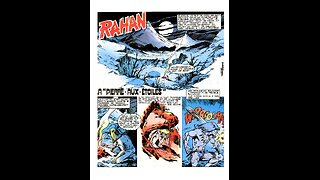 8:13
8:13
PukeOnABook
9 days agoRahan. Episode 130 By Roger Lecureux. The Star Stone. A Puke (TM) Comic.
191 -
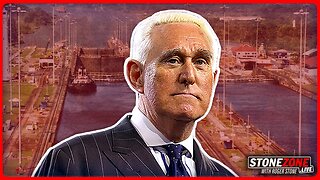 1:01:17
1:01:17
The StoneZONE with Roger Stone
15 hours agoChristmas Edition: Why the Panama Canal is Part of the America First Agenda | The StoneZONE
117K44 -
 18:12:15
18:12:15
LFA TV
1 day agoLFA TV CHRISTMAS EVE REPLAY
133K14 -
 13:32
13:32
Scammer Payback
16 hours agoChanging the Scammer's Desktop Background to his Location
6.35K3 -
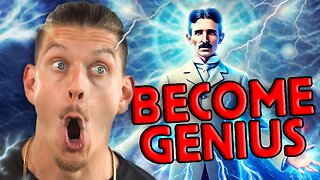 4:21
4:21
BIG NEM
18 hours agoNikola Tesla's Secret to Cultivating Creativity & Genius
4.14K1 -
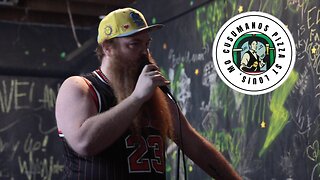 15:03
15:03
The Anthony Rogers Show
1 day agoAnthony Rogers - Live at Cusumano's Pizza (Upstairs)
3.26K1 -
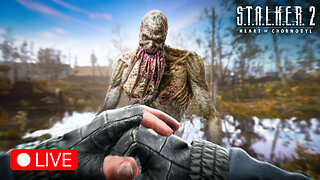 4:33:48
4:33:48
tacetmort3m
1 day ago🔴 LIVE - THE ZONE KEEPS PULLING ME BACK - STALKER 2 - PART 15
70.1K12 -
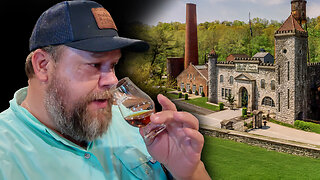 22:45
22:45
Brewzle
22 hours agoI Went Drinking In A Real Bourbon Castle
50.8K4 -
 48:36
48:36
PMG
1 day ago $4.54 earned"Parkland Parent Speaks Out On Kamala Harris Using Victims"
41.3K12 -
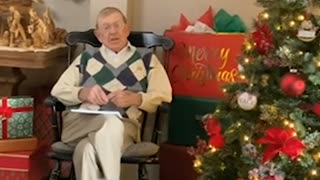 4:06
4:06
The Lou Holtz Show
21 hours agoCoach Lou Holtz’s Heartfelt Christmas Message 🎄 | Family, Faith & Notre Dame Spirit 💚 #christmas
30.2K